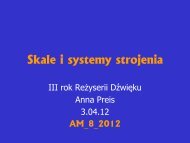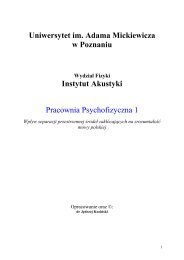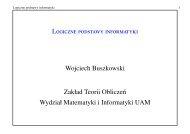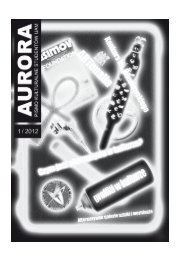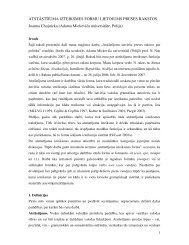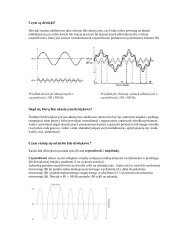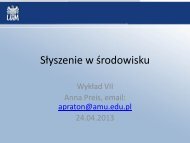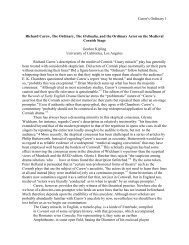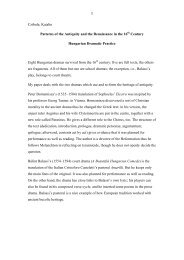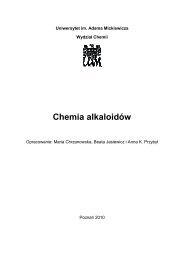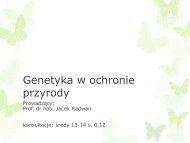Amir Weiner Getting to Know You
Amir Weiner Getting to Know You
Amir Weiner Getting to Know You
Create successful ePaper yourself
Turn your PDF publications into a flip-book with our unique Google optimized e-Paper software.
GETTING TO KNOW YOU 19<br />
up a sizable part of its archives, now at the NKVD’s disposal. 47 Like all other<br />
associations and individuals, whether on the right or the left of the political<br />
spectrum, being in opposition <strong>to</strong> the deposed interwar regime did not buy the<br />
Vapses a reprieve. On the eve of the war, the archives of the dismantled states<br />
helped register some 49,360 members of political parties and the political<br />
and regular police in the western Belorussian provinces. 48 In Es<strong>to</strong>nia alone,<br />
the archives registered nearly 38,000 people as “politically tainted.” 49 Simply<br />
put, 2 percent of the Es<strong>to</strong>nian population was recorded within five months.<br />
In their search for political enemies the archivist-policemen displayed<br />
impressive research skills that would have made even professional academics<br />
proud. When compiling prosecution files against former members of the<br />
political police, researchers combed the annual reports of the Ministry of<br />
Finance, looking for payments made for undercover operations, which were<br />
then produced as material evidence in establishing guilt. 50 With the entire<br />
archival apparatus of former independents states at its disposal, the regime<br />
acquired almost limitless venues for restructuring the social and political<br />
landscape.<br />
The same applied <strong>to</strong> the economic sphere, where the state’s monopoly<br />
over the labor force was used <strong>to</strong> solicit political information. Three weeks<br />
in<strong>to</strong> the invasion, the Belorussian NKVD had already cited informants in<br />
the Shpira fac<strong>to</strong>ry in Belas<strong>to</strong>k, who reported on fellow workers spreading<br />
anti-Soviet rumors. 51 Mass enrollment and elections in the trade unions<br />
were viewed as a golden opportunity <strong>to</strong> expose a variety of enemies. In mid-<br />
December 1939, the secretary of the Belas<strong>to</strong>k oblast committee (obkom)<br />
proudly informed his superiors in Minsk and Moscow that in the course of<br />
mass gatherings before and during registration in the unions, workers exposed<br />
the identity of agents of the Polish political police and members of hostile<br />
classes. 52 The 1,100 workers at Ammunition Fac<strong>to</strong>ry no. 508 in Lithuania<br />
were subjected <strong>to</strong> surveillance from the get-go. Although the Lithuanian<br />
Central Committee complained bitterly about the low level of party work<br />
and agitation in the fac<strong>to</strong>ry and ordered the replacement of the direc<strong>to</strong>r, with<br />
the help of two Russian functionaries brought from other Soviet republics, he<br />
was banned, and its followers were discharged from the state bureaucracies and placed under<br />
surveillance by the political police.<br />
47 GARF f. 5325, op. 2, d. 467, l. 2.<br />
48 Korneev and Kopylova, “Arkhivy na sluzhbe <strong>to</strong>talitarnogo gosudarstva,” 22.<br />
49 ERA f. R-1490, n. 1s, s. 1, l. 13.<br />
50 Ibid., s. 2, l. 3.<br />
51 NARB f. 4, op. 21, d. 1683, l. 34.<br />
52 Ibid., d. 1605, ll. 32–33.



